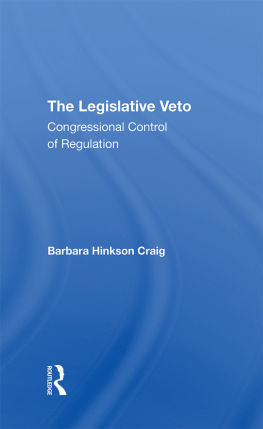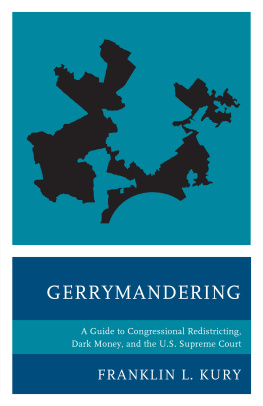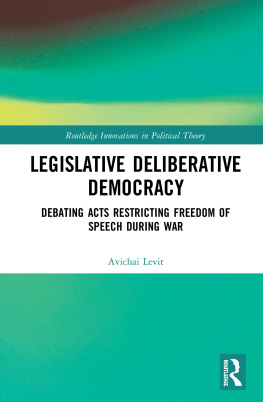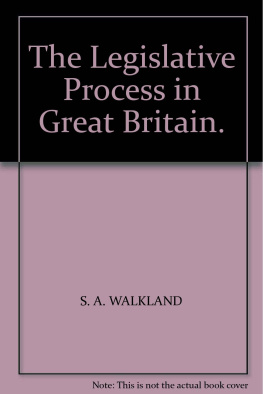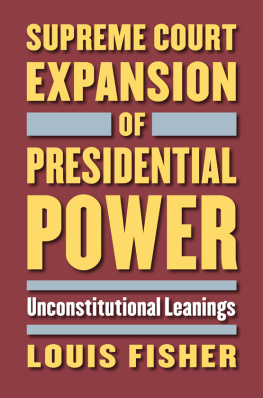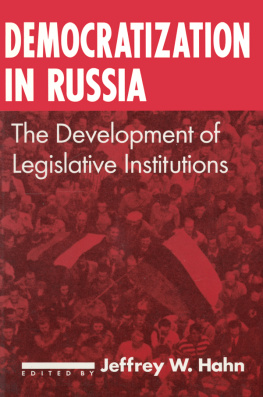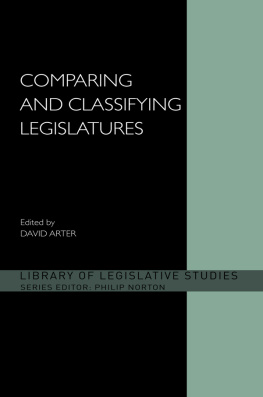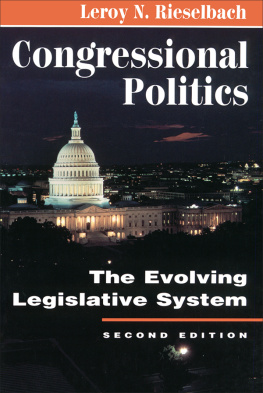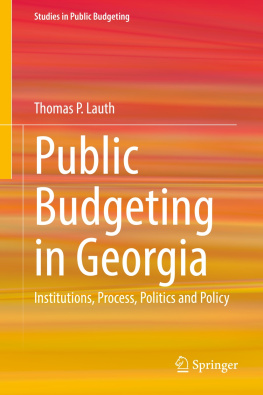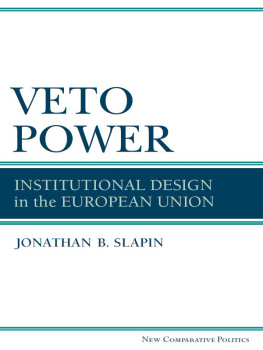The Legislative Veto
Westview Replica Editions
The concept of Westview Replica Editions is a response to the continuing crisis in academic and informational publishing. Library budgets for books have been severely curtailed. Ever larger portions of general library budgets are being diverted from the purchase of books and used for data banks, computers, micromedia, and other methods of information retrieval. Interlibrary loan structures further reduce the edition sizes required to satisfy the needs of the scholarly community. Economic pressures on the university presses and the few private scholarly publishing companies have severely limited the capacity of the industry to properly serve the academic and research communities. As a result, many manuscripts dealing with important subjects, often representing the highest level of scholarship, are no longer economically viable publishing projects--or, if accepted for publication, are typically subject to lead times ranging from one to three years.
Westview Replica Editions are our practical solution to the problem. We accept a manuscript in camera-ready form, typed according to our specifications, and move it immediately into the production process. As always, the selection criteria include the importance of the subject, the work's contribution to scholarship, and its insight, originality of thought, and excellence of exposition. The responsibility for editing and proofreading lies with the author or sponsoring institution. We prepare chapter headings and display pages, file for copyright, and obtain Library of Congress Cataloging in Publication Data. A detailed manual contains simple instructions for preparing the final typescript, and our editorial staff is always available to answer questions.
The end result is a book printed on acid-free paper and bound in sturdy library-quality soft covers. We manufacture these books ourselves selves using equipment that does not require a lengthy make-ready process and that allows us to publish first editions of 300 to 600 copies and to reprint even smaller quantities as needed. Thus, we can produce Replica Editions quickly and can keep even very specialized books in print as long as there is a demand for them.
About the Book and Author
The Legislative Veto: Congressional Control of Regulation
Barbara Hinkson Craig
On June 23, 1983, the U.S. Supreme Court declared a legislative veto unconstitutional in the Immigration and Naturalization Service v. Chadha case, a ruling that seems to invalidate the legislative vetoes in more than two hundred laws. Two weeks later the court reaffirmed the principles of Chadha to invalidate the legislative veto in other acts. These epic cases, which are already being called the most important separation-of-powers rulings since the White House tapes cases, have generated debate over the implications of the loss of the legislative veto and the wisdom of the court's actions.
In this book the author argues that the legislative veto fell far short of its promise in actual operation over the regulatory process. Instead of promoting democratic congressional control over the actions of bureaucrats, legislative veto politics more often devolved to the politics of special interest protection, heavily influenced by unelected congressional staff. Moreover, the legislative veto. allowed Congress to sidestep conflicts by issuing vague mandates that left agencies without the necessary congressional support to implement them.
Dr. Craig combines a historical perspective on the legislative veto with analyses of original case studies involving some of the most important policy issues of the 1980s--housing, education, energy, and consumer protection. Assessing all the cases available for research, she points to discrepancies between the legislative veto's intended effects and its actual results. In a final chapter she considers the impact of the Chadha case and discusses possible alternatives to the legislative veto for congressional control of regulation.
Barbara Hinkson Craig is assistant professor of government at Wesleyan University.
To the memory of mv father JAMES RICHARDS HINKSON
The Legislative Veto Congressional Control of Regulation
Barbara Hinkson Craig
First published 1983 by Westview Press, Inc.
Published 2019 by Routledge
52 Vanderbilt Avenue, New York, NY 10017
2 Park Square, Milton Park, Abingdon, Oxon OX14 4RN
Routledge is an imprint of the Taylor & Francis Group, an informa business
Copyright 1983 Taylor & Francis
All rights reserved. No part of this book may be reprinted or reproduced or utilised in any form or by any electronic, mechanical, or other means, now known or hereafter invented, including photocopying and recording, or in any information storage or retrieval system, without permission in writing from the publishers.
Notice:
Product or corporate names may be trademarks or registered trademarks, and are used only for identification and explanation without intent to infringe.
Library of Congress Cataloging in Publication Data
Craig, Barbara H. (Barbara Hinkson), 1942
The legislative veto.
(A Westview replica edition)
1. Legislative veto--United States. 2. Administrative procedure-
United States. I. Title.
KF4944.C7 1983 328.73'0775 83-12371
ISBN 13: 978-0-367-29349-9 (hbk)
Few recent Supreme Court decisions have been as widely debated, interpreted, and misinterpreted as the decision declaring the legislative veto unconstitutional. Some see the decision as a major defeat for the Congress and as a step toward return of the "Imperial Presidency." Others argue that the executive will be the loser because the Congress will be reluctant to grant discretionary powers without strings attached. But as Professor Barbara H. Craig's meticulously documented case studies conclusively demonstrate, it is highly misleading to reduce the complex and significant issues raised by the legislative veto to a simple contest for power between the executive branch and the Congress.
In analyzing the consequences of procedural change, Professor Craig is exploring a subject that up to now has received insufficient attention from administrators, lawmakers, and the scholarly community. Procedures may not attract headlines but they can have a critical influence on the formulation and execution of public policies. The ultimate test should be whether procedures contribute to more responsive and responsible government.
Procedural "reforms" such as the legislative veto may well produce results opposite from those intended by their advocates. While ostensibly designed to control the power of unelected bureaucrats, the legislative veto appears to have done the reverse. Professor Craig's research shows that instead of promoting more open government and effective control of bureaucratic power, the legislative veto in many instances has become a vehicle for secret negotiations and decision making by congressional and executive agency staff with minimal participation by elected members of the Congress.
Professor Craig's book should be required reading for lawmakers, administrators, and all those interested in understanding the intricacies of legislative politics, and executive-legislative relations. It underscores the need for substituting analysis for rhetoric in evaluating proposals for procedural reform.

